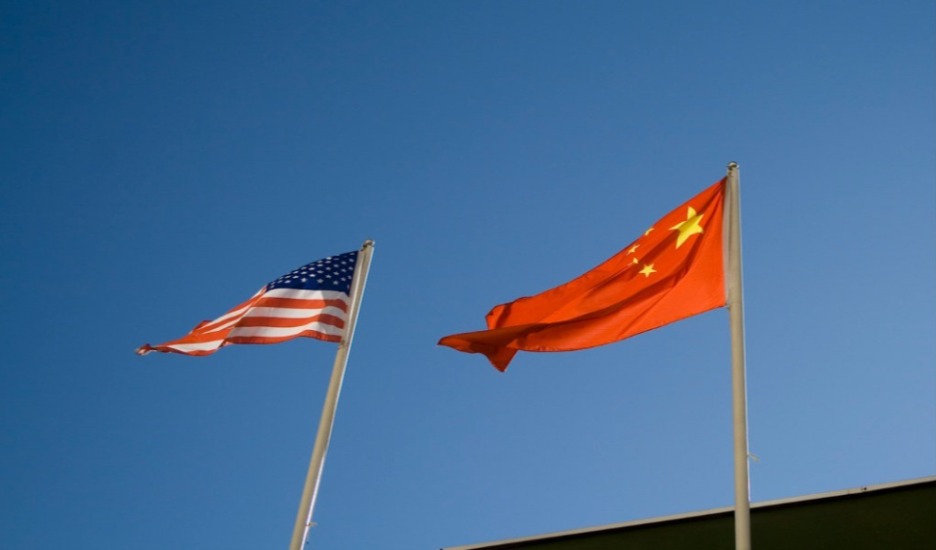Checks and Balances From Abroad
I just posted a short piece to SSRN entitled, “Checks and Balances from Abroad.” The piece, written for a University of Chicago Law School symposium on national security, technology, and the separation of powers, engages claims about how “unfettered” the President really is in the national security arena.
Published by The Lawfare Institute
in Cooperation With

I just posted a short piece to SSRN entitled, “Checks and Balances from Abroad.” The piece, written for a University of Chicago Law School symposium on national security, technology, and the separation of powers, engages claims about how “unfettered” the President really is in the national security arena. I argue that this line of analysis has failed to account for acts by foreign leaders, corporations, litigants, and peer intelligence services that either trigger our own domestic checks and balances (and thus produce constraints on the Executive) or simulate comparable effects in our system.
Here’s the introduction (with citations omitted):
It is a truism that the Executive has accrued to itself the lion’s share of power and control in the U.S. national security arena. One key reason is Congress’s inability to conduct appropriate levels of intelligence oversight. The Executive possesses significant informational and operational advantages; Members of Congress face limited incentives to conduct oversight that does not advance constituent interests; and Congressional staffing and technical expertise are insufficient to the task. As a result, the checks and balances that are a critical aspect of our democracy are particularly fragile in areas such as cyber, electronic surveillance, and covert operations.
In the face of this weakened system of checks and balances, scholars have examined potential substitutes for vigorous inter-branch competition. One strand of scholarship argues that Executive intra-branch competition can produce policies that take into account a broader balance of interests. Another strand asserts that, during periods of divided government, competition between political parties serves a function comparable to inter-branch separation of powers. Other work argues that participation by private actors in the administrative process can enhance accountability.
Almost no scholarship has explored the potential or actual impact of foreign actors on U.S. checks and balances. At first glance, this is unsurprising: checks and balances are a domestic constitutional concept, and the rules regulating inter-state interactions – international law – are disinterested in how states organize themselves internally. It turns out, however, that a variety of foreign actors, including leaders, courts, citizens, and corporations, have the capacity to affect either the quantum of power within a single branch or the allocation of power among the three branches of U.S. government, particularly in the area of intelligence activity.
This paper makes two related arguments about foreign influences on U.S. checks and balances. First, these foreign influences can stimulate the traditional operation of checks and balances in the U.S. system. That is, the foreign action prompts one or more of the branches to act in ways consistent with the conventional understanding of how checks and balances operate. This paper terms these actions “external prompts.” Second, and more controversially, these foreign actions replicate some of the effects produced by the U.S. system of checks and balances, even if they do not stimulate the U.S. system to act endogenously. The paper terms these “external checks.” The Framers envisioned that checks and balances among the branches would serve several functions: ensuring that no branch unduly expands its constitutionally-assigned role; fostering deliberation to produce better policies; and precluding one branch from consolidating excessive power. Part II explores how four types of foreign actions serve as external prompts, external checks, or both.
The persuasiveness of this account depends on one’s view of how much the Executive needs assistance from foreign actors. If one believes that the United States is a Gulliver that has no need for – and therefore cannot be constrained by – Lilliputian foreign states whose cooperation may advance U.S. national security goals, one will be skeptical of this account. Further, there undoubtedly are cases in which cooperation with foreign states bolsters Executive branch authority instead of constraining it. If, however, one recognizes that U.S. national security increasingly relies on relationships with foreign partners, then the idea that the Executive responds to foreign critiques and concerns to enable ongoing partnerships has bite.
Part I briefly describes the reasons for Congress’s weakness in conducting intelligence oversight and the Executive’s dominance over U.S. intelligence policy. It then considers how a changing intelligence landscape provides fodder for foreign actors to alter this traditional story: new missions require more intelligence partners; leaks and voluntary transparency provide far more information about those missions; and the volume of legal rules that now bind the U.S. and peer intelligence services makes the United States more susceptible to foreign constraints in its operations. Part II explores four sources of foreign influence on the Executive’s national security policies and Congress’s informational access, demonstrating how each influence serves as an external prompt or external check by prompting the Executive to self-regulate, improving Congress’s understanding of complicated Executive cyber and surveillance activities, or weakening the Executive directly. Part III evaluates foreign actors’ impact on the allocation of power between the political branches.




.jpeg?sfvrsn=c4bce09_7)
